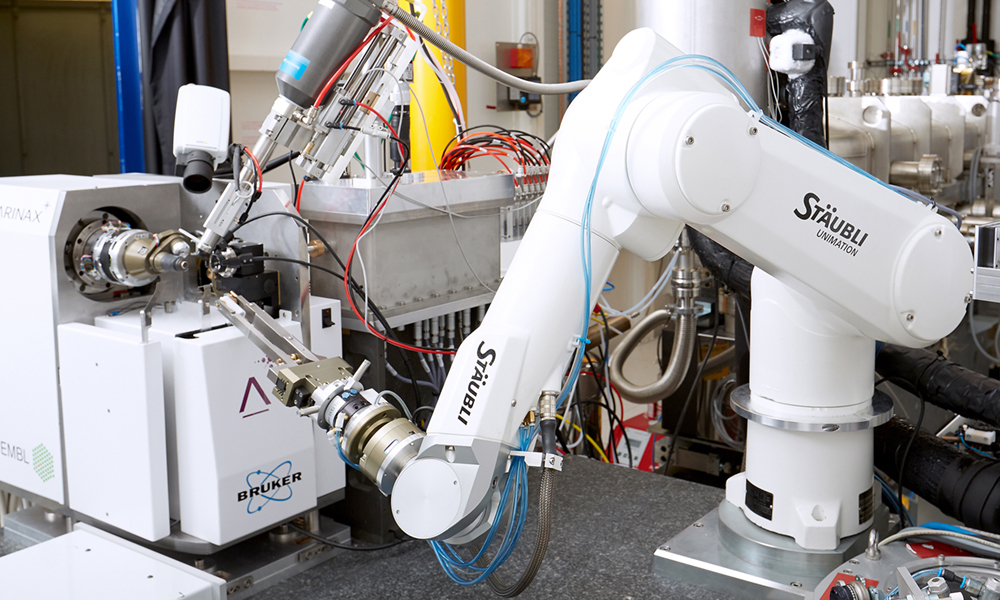
Facilitating COVID-19 structural biology research
EMBL and the European Synchrotron Radiation Facility (ESRF) restart the activities of the Joint Structural Biology Group in Grenoble to support coronavirus-related projects

The Joint Structural Biology Group (JSBG) is a long-term collaboration between EMBL and the European Synchrotron Radiation Facility (ESRF) to foster the development of structural biology methods and instrumentation in Grenoble. EMBL and the ESRF have now launched an initiative that will allow users working on COVID-19 research projects to be granted access to the High-Throughput Crystallisation (HTX) lab at EMBL and to a macromolecular crystallography (MX) beamline at the ESRF with a single project proposal. The initiative will enable a streamlined process through crystal production, testing, and data collection, using fully automated protein-to-structure pipelines, which have been established as part of the JSBG. These pipelines allow users to mail in samples and remotely perform crystallisation, crystal optimisation, fragment screening, and structure determination experiments, and will facilitate COVID-19 research involving structural biology.
Users wishing to benefit from combined access to the HTX lab and MX beamlines for COVID-19 research should send an email indicating their interest to jsbg-covid-19@embl.fr. They will then be sent a short application form to complete.
The HTX lab and access to the MX beamline in Grenoble are part of a wide range of structural biology services offered by EMBL on four of its sites. EMBL Grenoble and EMBL Hamburg provide support for X-ray-related experiments, in close collaboration with the European Synchrotron Radiation Facility (ESRF) in Grenoble and the German Electron Synchrotron (DESY) in Hamburg. At both sites, synchrotron beamlines are complemented by facilities for the preparation and crystallisation of biological samples. At Grenoble, a Titan Krios microscope installed at the ESRF and run jointly by the four institutes on Grenoble’s EPN campus is available via peer-reviewed access granted by the ESRF Beamtime Allocation Review Panel. EMBL Heidelberg provides access to the Cryo-EM Service Platform, and to advanced facilities for sample preparation and data analysis. This range of services for external users will be offered from 2021 at the EMBL Imaging Centre. EMBL’s European Bioinformatics Institute (EMBL-EBI) in Hinxton, UK, provides additional support through its data repositories (PDB, EMDB, and EMPIAR).


